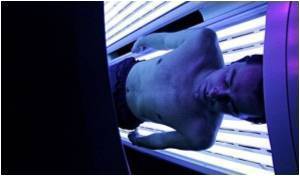Young adult survivors of childhood cancers are four times more likely to develop Post-Traumatic Stress Disorder (PTSD) than their control group siblings, revealed a study.

The study found that 589 survivors, or 9 percent, reported significant functional impairment and clinical distress as well as symptoms consistent with a full diagnosis of PTSD.
On the other hand, eight siblings, or 2 percent, reported impairment, distress and PTSD symptoms.
"Childhood cancer survivors, like others with PTSD, have been exposed to an event that made them feel very frightened or helpless or horrified. This study demonstrates that some of these survivors are suffering many years after successful treatment. Development of PTSD can be quite disabling for cancer survivors. This is treatable and not something they have to just live with," said Dr. Margaret Stuber, a Jonsson Cancer Center researcher and first author of the study.
Affected survivors reported symptoms such as increased arousal, phobias, startling easily, being hyper vigilant, avoidance of reminders of their cancer diagnosis and treatment, being on edge and suffering extreme anxiety.
They also reported that the symptoms kept them from functioning normally.
Advertisement
There could be several reasons for the discrepancy-today's treatment regimens employ less toxic treatments and rely far less on whole head radiation for brain tumours, causing far less trauma to the young patients.
Advertisement
The survivors in Stuber's study often underwent far harsher treatment regimens commonly used in the 1970s and early 1980s, and within the group studied, those that underwent the more toxic and damaging therapies reported more cases of PTSD.
Another possible reason that more of the young adults reported PTSD symptoms is because they're facing the stressful situations typical for people at that age - finding a job, getting married, starting a family.
That stress may exacerbate the PTSD, said Stuber.
And because many of the patients in the study underwent harsh therapies, they often suffer from significant late effects - infertility, cognitive impairment, stunted growth. This adds to stress levels as well.
Those that suffer from cognitive impairment may find it impossible to go to college or to land a good job that earns them an adequate income.
Treatment options such as therapy and medication are available to help the survivors manage their symptoms. But addressing the issue will not be simple, said Stuber.
The study is published in the May issue of the journal Pediatrics.
Source-ANI
TAN














